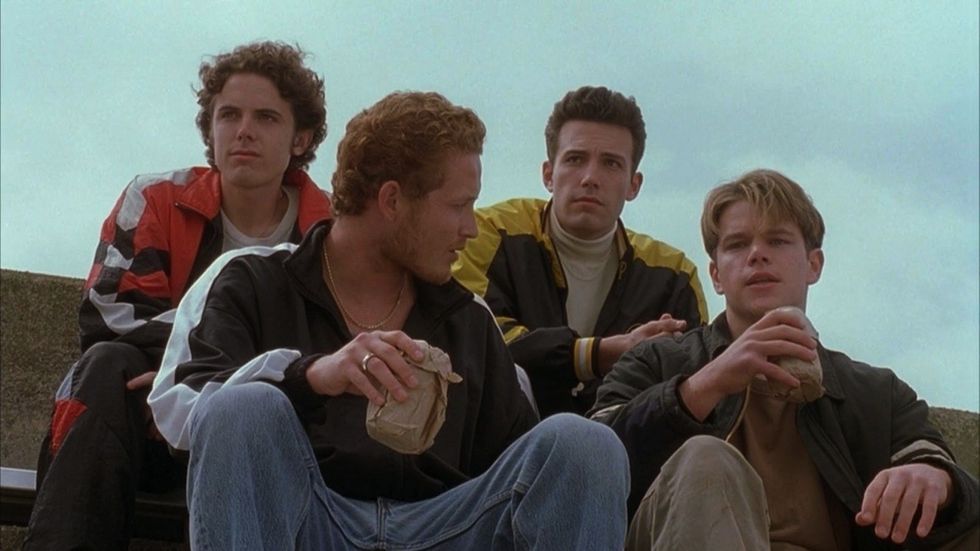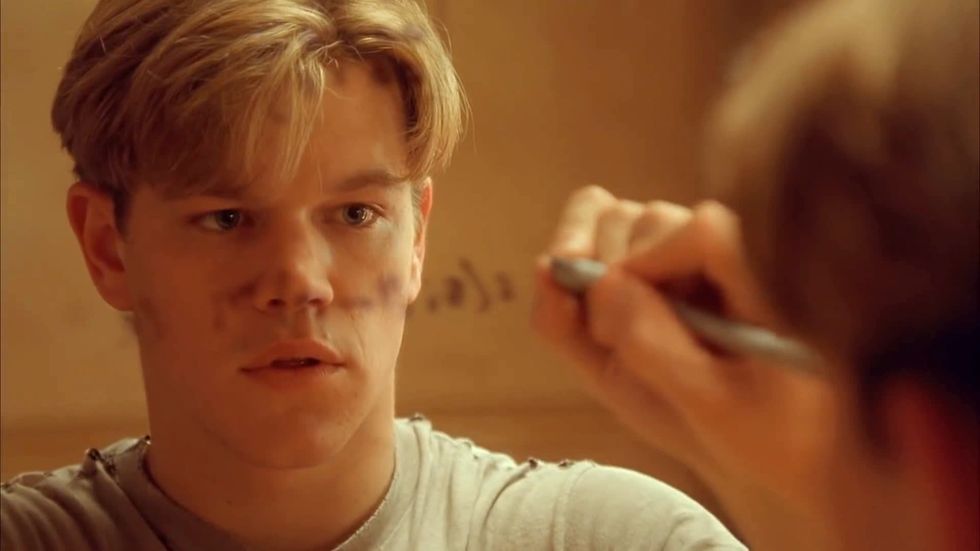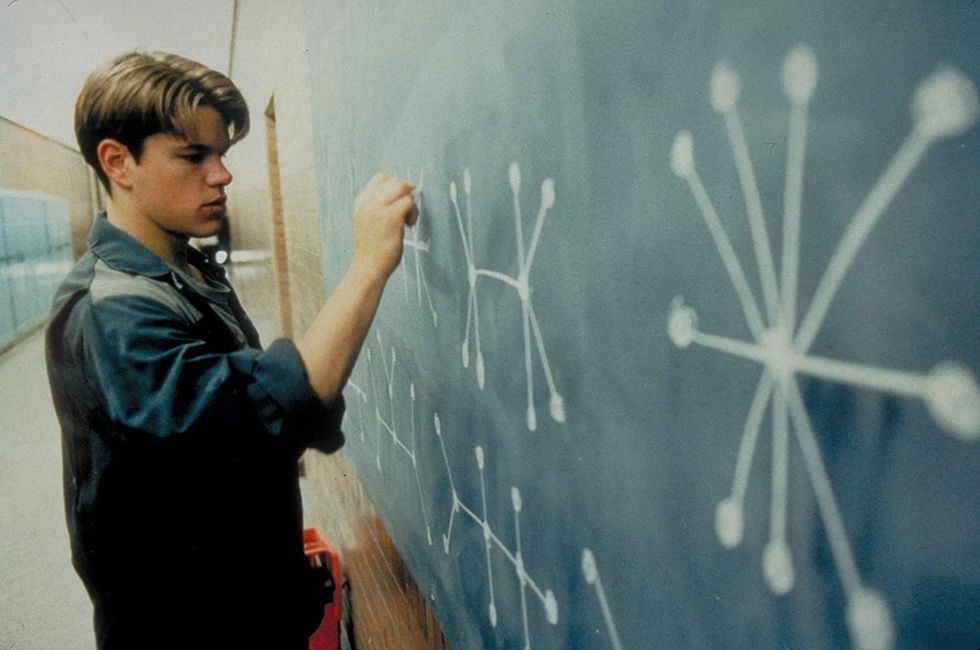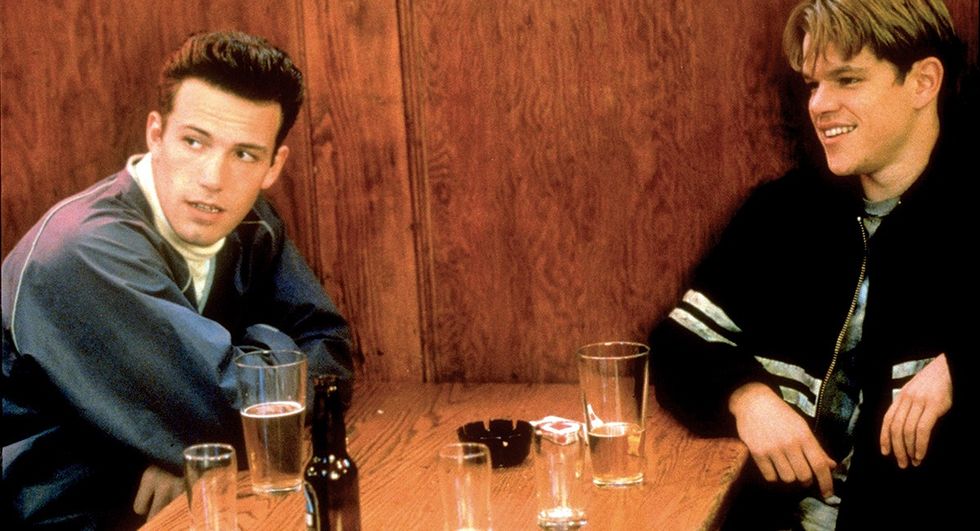
In the world of cinema, certain scripts stand out not just for their storytelling prowess, but for the invaluable lessons they impart to aspiring screenwriters.
One such gem is the script of Good Will Hunting.
Written by Matt Damon and Ben Affleck, this script not only propelled the duo into Hollywood stardom but also offers a masterclass in crafting a compelling narrative that resonates with audiences on a profound level.
It turned into an amazing movie directed by Gus Van Sant.
It’s also one of my favorite scripts to read because I think it contains some of the most valuable lessons in all of screenwriting.
Read and download the Good Will Hunting screenplay right here. Then, let’s go through all five lessons after.
Read and Download ‘Good Will Hunting’ Screenplay
Good Will Hunting (1997) -Written by Matt Damon and Ben Affleck, Directed by Gus Van Sant
1. Character Depth and Arcs
At the core of whatever you’re writing is character development and character arcs. And when these two things go spectacularly, you get something like Good Will Hunting.
Let’s pull them apart.
Will Hunting (Matt Damon) is a brilliant but troubled janitor. He gets in fights. He’s on parole, he will not listen to authority.
His teacher is an egomaniac and a womanizer who hasn’t been humbled in years. His therapist needs a friend and cannot seem to shake the trauma of his dead wife. His girlfriend lost both her parents and is having trouble hanging onto him.
Everyone in this movie has to get through and get over and get lost. It all feels real and relatable and dire.
Aspiring screenwriters can learn that characters with depth, flaws, and emotional evolution are the beating heart of any narrative. This resonates with audiences because it is authentic, relatable, and ultimately, transformative.
2. Authentic Dialogue

From the moment you hear the thick Boston accents in the movie, you know you’re in a very specific place. But it’s not just the way the words sound, it’s what’s being said as well. There’s wit, humor, and heart in this script.
We’re pausing to hear specific voices and tenors. Each character pops off the page. You could cover their names and know who was speaking due to the timing of the dialogue and word choice.
Dialogue in movies is so important. It sells the time, the place, and the world to the audience. It attracts powerful actors and can get you awards.
What I love the most in this movie is the banter between Will and his therapist, Sean Maguire (Robin Williams). It provides insight into their psychology, forging a connection with the audience and getting them both to arc.
Great dialogue should not only move the story forward but also reveal nuances about the characters, fostering a deeper engagement.
3. Balancing Humor and Drama

I think the tone of this movie is really special. There are lots of laughs in here but also a heart-pounding drama that can make you cry.
Good Will Hunting masterfully blends humor and drama to create a balanced emotional journey. This serves as a reminder that even in stories dealing with heavy themes, well-placed humor can provide relief and amplify the impact of emotional scenes.
If you have both, you can always surprise the audience with one or another.
4. Nurturing Relationships

At its heart, this is a movie about learning to accept love. We see this in Will’s journey, but also in the other characters who have to learn things like dealing with loss and even dealing with mortality.
Screenplays need to focus on the themes and relationships at their center. They are showcasing the complexity of human interactions and how they drive the narrative forward.
Aspiring screenwriters should focus on creating relationships that serve the story’s emotional core and character growth.
How do the themes in those echo throughout the pages?
5. Embracing Vulnerability

Good Will Hunting champions vulnerability as a driving force behind character development. Personal demons and vulnerabilities are put on front street for all its characters, allowing them to grow and connect on a profound level as they hug, fight, and talk over the course of the film.
This lesson teaches writers that vulnerability not only makes characters relatable but also fosters empathy from the audience.
Crafting moments of emotional openness can be a powerful tool for deepening engagement and investment in the story.
Summing the Leasons Up From the ‘Good Will Hunting’ Screenplay
Good Will Hunting isn’t just a film, it’s a masterclass in storytelling.
The script’s ability to craft layered characters, authentic dialogue, and emotional depth provides invaluable lessons for aspiring screenwriters. By studying and applying these lessons, storytellers can elevate their own craft and create narratives that resonate long after the final credits roll.
So, pick up the script, absorb its brilliance, and let it inspire you to craft stories that touch the hearts and minds of audiences around the world.
Then go get writing!
Author: Jason Hellerman
This article comes from No Film School and can be read on the original site.
